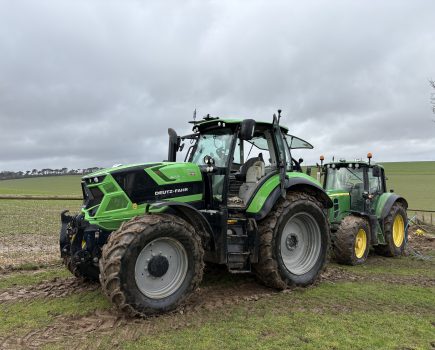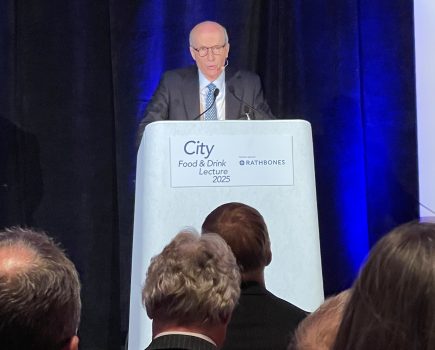PM Rishi Sunak fulfilled a leadership campaign promise last month and hosted a “farm-to-fork summit to address food insecurity in Britain” at 10 Downing Street. Can we hope that this meeting had some impact, apart from inflating the self-importance and flattering the egos of the 70 or so farming and food chain representatives who attended?
The title of the meeting worried me as it included the term “food insecurity”. The problem with using that phrase is that, in Whitehall at least, there is a long-held belief that Britain’s food insecurity actually increases if UK farmers grow a high proportion of the food our country needs.
However bonkers that sounds, significant portions of our civil service believe that if our supermarkets get too used to sourcing most of their produce from the UK, they won’t develop alternative supplies of apples, lamb, wheat, beef etc from abroad. Then, if there is a local difficulty with UK production due to an extreme weather event, the country might suffer from severe food shortages.
When the UK was still a member of the EU, civil servants convinced a series of DEFRA ministers of this weird logic and packed them off to Brussels to try to convince other member states that the EU should be less protectionist and more open to the idea of non-EU food imports and therefore spend less on the CAP.
As we know, fellow EU member states were far too sensible to listen and carried on spending about 40% of the EU’s budget on the CAP to ensure a high level of EU food self-sufficiency.
But, of course, Britain is no longer a member of the EU so the Conservatives now have a free hand to play fast and loose with UK food security, egged on enthusiastically by Whitehall.
So it was that Liz Truss quickly signed the UK up to two terrible trade deals with Australia and New Zealand after Brexit when she was Trade Secretary. These deals were so bad (they will let unlimited amounts of beef, lamb and dairy products into the UK tariff-free) that even DEFRA secretary George Eustice described them as “not very good” – albeit not until he’d been sacked from the cabinet.
The focus of the Downing Street meeting was to see what could be done to give farmers a better deal within the food supply chain (how many times have we heard that?) and put more focus on UK farmers’ interests when it comes to future trade deals. This includes insisting that imported food is produced to the same standards as are required in the UK. Let’s hope that some of these vague assurances work through into policy, but I have my doubts.
If I were Minette Batters I certainly wouldn’t attend any further Downing Street soirée that had “food insecurity” in the title, as the phrase can mean different things to different people.
Only when ministers commit to improving UK food “self-sufficiency” will we have a policy that has a clear, unambiguous meaning that can’t be backtracked on by smooth-talking Whitehall mandarins, ideologically committed to free trade.







